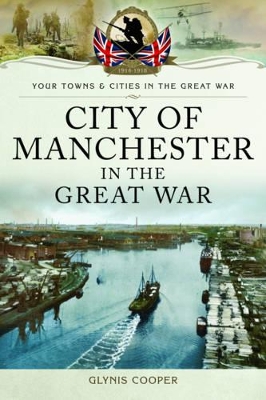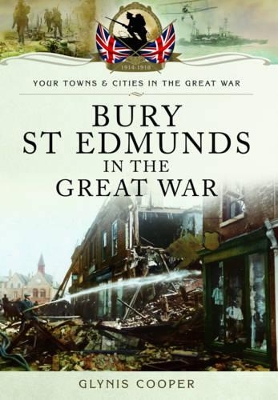Towns and Cities
2 total works
The war touched almost every aspect of life on the Home Front, and those who were left behind suffered terribly. This book meticulously explores the problems, hardships and grief faced by Manchesters people and takes a detailed look the unfortunate areas that were hit the hardest. Throughout Britain, industry declined and wages suffered; prices of food and fuel rose sharply; essential foodstuffs and coal were hoarded for the black market; soldiers families doubled up with others, which caused severe overcrowding; housing and sanitation improvements ceased; there were epidemics of measles, chicken pox, influenza and TB; German U-boats tried to prevent supplies reaching Britain; and Zeppelin airships attempted to destroy British trade and industry. Manchester City suffered greatly because of its cotton trade, its industrial output, and its proximity to Liverpool, but its citizens were determined not to let the Kaiser win.
This book documents how they fought back by living in a twilight world of black outs so that enemy airships would miss their targets; how they accepted emergency rationing of food and coal, and restrictions; and how they worked tirelessly in the nearby cotton mills and munitions factories, and dug for victory on their allotments. Overall, the people of Manchester were united in their grief over the sad loss of life on the fronts. This grief broke across class barriers and saw debutantes and mill girls, alike, take comfort in each other. City of Manchester in the Great War tells the remarkable story of the spirit of a city whose citizens refused to give in, who strived to fight the odds that were stacked against them.
This book documents how they fought back by living in a twilight world of black outs so that enemy airships would miss their targets; how they accepted emergency rationing of food and coal, and restrictions; and how they worked tirelessly in the nearby cotton mills and munitions factories, and dug for victory on their allotments. Overall, the people of Manchester were united in their grief over the sad loss of life on the fronts. This grief broke across class barriers and saw debutantes and mill girls, alike, take comfort in each other. City of Manchester in the Great War tells the remarkable story of the spirit of a city whose citizens refused to give in, who strived to fight the odds that were stacked against them.
The Great War came as a shock to the citizens of Bury St Edmunds, a rural Suffolk town. One day they were celebrating a beautiful, hot August bank holiday at a large well-attended country fete; the next they were plunged into the deadliest war in history. Men from the Suffolk Regiment, who were based in the town's barracks, marched off to war and fought valiantly in Flanders, France and Gallipoli. Folk left at home devoted their time and energy to supporting the troops, the war effort and themselves, but they also found time to mark the 700th anniversary of the drawing up of Magna Carta in the local abbey and the tercentenary of Shakespeare's death. The reality of the war was brutally brought home by the heavy losses of the Suffolk Regiment, and by Zeppelin attacks on Bury in 1915 and 1916. The first attack caused a lot of damage, and the second attack was considerably more serious. Seven people were killed and there were a number of injuries. Just a few miles from Bury, a battlefield was re-created on the Elveden estate for training troops in the use and mechanics of tank warfare.Elveden had formerly been owned by the last Maharajah of the Punjab and his son, Prince Frederick Duleep Singh, fought for the British in both the Suffolk and Norfolk regiments.
Bury St Edmunds in the Great War tells the remarkable story of a town whose citizens refused to give in, who strived to fight the odds that were stacked against them. They worked hard to ensure the defeat of the kaiser and consequently, in recognition of their war efforts, Bury was awarded a captured German Kaffir tank in 1919.
Bury St Edmunds in the Great War tells the remarkable story of a town whose citizens refused to give in, who strived to fight the odds that were stacked against them. They worked hard to ensure the defeat of the kaiser and consequently, in recognition of their war efforts, Bury was awarded a captured German Kaffir tank in 1919.

